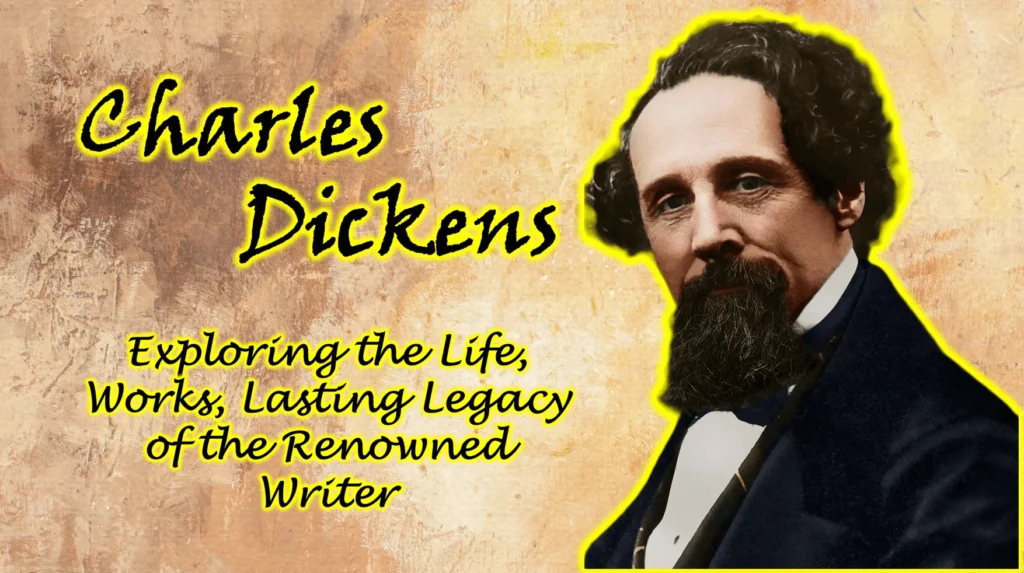
Introduction
Charles Dickens is a literary figure whose impact on the world of literature cannot be overstated. Born in 1812 in Portsmouth, England. Dickens went on to become one of the most celebrated and influential novelists of the Victorian era. His works, including “A Tale of Two Cities,” “Great Expectations,” and “Oliver Twist,” continue to captivate readers with their vivid characters, social commentary, and timeless themes. In this blog post, we will delve into the life, works, and lasting legacy of Charles Dickens, exploring why he remains a literary icon to this day.
Overview of Charles Dickens
Charles Dickens was raised in a working-class family and experienced first-hand the social injustices and hardships of 19th-century England. These early experiences would go on to shape his writing and fuel his passion for advocating for the underprivileged. Dickens began his writing career as a journalist, reporting on parliamentary debates and social issues. It was during this time that he honed his skills as an observer of human nature, a talent that would serve him well in his later works of fiction.
Significance of Charles Dickens in literature
The significance of Charles Dickens in the world of literature cannot be overstated. His novels were a revolutionary departure from the traditional expectations of Victorian fiction. Dickens injected his stories with a social conscience, using his characters and narratives to shed light on the harsh realities of class struggles, poverty, and societal inequities. His works served as a catalyst for social change, inspiring readers to question and challenge the status quo.
Understanding the Life, Works, and Impact of Charles Dickens
Charles Dickens, both through his life and works, had a profound impact on literature and society at large.
Life of Charles Dickens
Charles Dickens’s life was not without its share of trials and tribulations. He experienced poverty, debt, and personal hardships, which he drew upon in his writings to create relatable and compelling stories. His upbringing in a tumultuous family environment, coupled with a relentless work ethic, shaped his perspective on human nature and inspired his character development.
Works of Charles Dickens
Charles Dickens produced a prolific body of work throughout his career. His novels and shorter stories are known for their intricate plots, memorable characters, and keen social observations. From the haunting tale of Miss Havisham in “Great Expectations” to the heartwarming redemption of Ebenezer Scrooge in “A Christmas Carol,” Dickens crafted stories that resonate with readers across generations.
Impact of Charles Dickens
The impact of Charles Dickens reaches far beyond the literary world. His writings shed light on the harsh realities of Victorian society, exposing issues such as child labor, poverty, and social inequality. Through his vivid storytelling, Dickens helped foster empathy and understanding among readers, encouraging them to take action and demand change. His works continue to be studied and celebrated for their timeless themes and poignant messages.
Early Life and Influences
Dickens’ childhood and family background
Born on February 7, 1812, in Portsmouth, England, Charles Dickens emerged into a world defined by contrasts. Within the embrace of his family’s close bonds, he found solace amid the tempests of adversity that shaped his early years. His father, John Dickens, dedicated his days to the meticulous tasks of a naval clerk, while his mother, Elizabeth Dickens, navigated the intricate nuances of nurturing their brood of eight children.
Despite the initial stability of the family, the Dickens faced financial difficulties when John Dickens was unable to manage his money properly. This culminated in his imprisonment in the Marshalsea debtors’ prison, leaving young Charles to seek employment at age 12 to support his family. This early exposure to hardship and social inequality would shape his writing and contribute to his compassion for the poor and disadvantaged.
Educational experiences and influential figures
While his formal education was limited due to his family’s financial challenges, Dickens found solace in reading and self-education. He attended a few different schools, but his formal education came to an end when his father was released from prison and Charles was able to return home. This sparked his ambitions as a writer and led him to become a passionate autodidact.
Notably, Dickens was highly influenced by William Shakespeare’s works, which he discovered during his early years. He was enamored with the richness of language, character development, and social commentary found in Shakespeare’s plays. This influence would be evident in Dickens’ own writing, as he strove to create complex and relatable characters and explore societal issues in his novels.
Early literary influences and interests
As Dickens grew older, he developed a keen interest in the works of Henry Fielding, Daniel Defoe, and Jonathan Swift. These authors, known for their satirical and comedic approaches to social criticism, inspired Dickens to incorporate humor and wit into his own writing. Additionally, the works of Charles Lamb and Richard Barham introduced Dickens to the world of journalism and the power of bringing social issues to public attention through the written word.
Subsequent career choices and their impact
After a brief stint as a law clerk, Dickens landed a job as a journalist. This experience allowed him to further refine his writing skills and exposed him to the harsh realities of Victorian society. He started publishing his sketches and short stories, gaining popularity among readers. However, it was the publication of his first novel, “The Pickwick Papers,” that propelled him to literary stardom and solidified his career as a writer.
Throughout his career, Dickens addressed a wide range of social issues in his novels, such as poverty, child labor, and the struggles of the working class. His vivid descriptions of urban life and memorable characters, like Ebenezer Scrooge in “A Christmas Carol,” continue to resonate with readers to this day.
Dickens’ impact extended beyond the literary realm. He used his writing to advocate for social reform, bringing attention to injustices and inspiring societal change. His novels also played a significant role in shaping public opinion and raising awareness about the importance of empathy and compassion towards others.
Charles Dickens’ early life, educational experiences, and subsequent career choices greatly influenced his writing. His enduring legacy lies not only in his literary achievements but also in his role as a social critic and advocate for positive change. Dickens’ ability to capture the human condition with compassion and realism continues to captivate readers and inspire writers worldwide.
Literary Career and Notable Works
Dickens’ writing style and literary techniques
Charles Dickens possessed a unique writing style that blended realism with vivid imagination, making his works both relatable and imaginative. His novels often featured intricate plots, well-developed characters, and a sharp depiction of social issues. Dickens masterfully used vivid imagery and descriptive language to transport readers into his narratives.
One of the notable literary techniques employed by Dickens was his skillful use of humor, which acted as social criticism. For instance, in his novel “A Tale of Two Cities,” Dickens humorously portrays the absurdity of the French aristocracy by employing witty dialogue and satirical elements. This combination of humor and criticism added depth to Dickens’ works, making them highly engaging and thought-provoking.
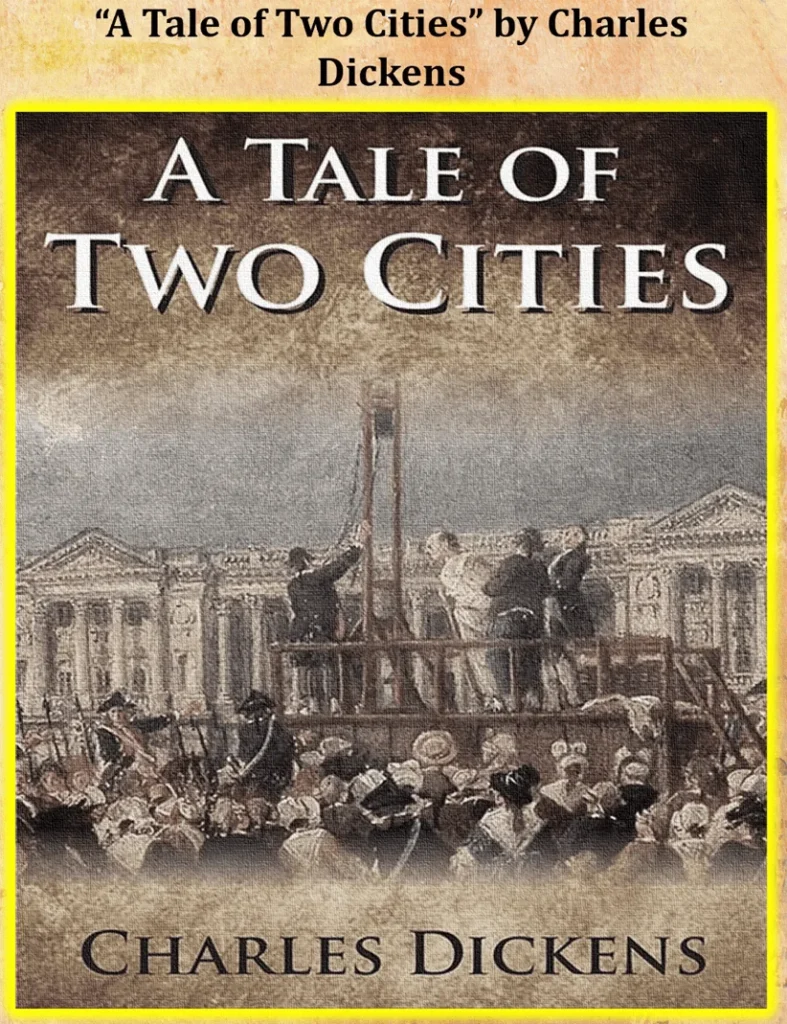
Exploration of Dickens’ major novels
“Oliver Twist”: Themes and social commentary
“Oliver Twist” remains one of Dickens’ most acclaimed works, highlighting themes of poverty, injustice, and the plight of the poor. The novel follows the journey of Oliver, an orphan, through a world dominated by exploitation. Through Oliver’s experiences, Dickens exposes the harsh realities faced by the marginalized, shedding light on the deplorable conditions in workhouses and the criminal underworld.

In “Oliver Twist,” Dickens skillfully intertwines his social commentary with an engaging plot, capturing the reader’s attention while shedding light on important societal issues. The novel serves as a powerful reminder of the need for compassion and social reform, making it a timeless masterpiece.
The influence and enduring appeal of “A Christmas Carol”
“A Christmas Carol,” perhaps one of Dickens’ most beloved works, continues to resonate with readers worldwide. This novella tells the story of Ebenezer Scrooge, a cold-hearted man visited by ghosts who guide him towards redemption. Dickens’ beautiful portrayal of the transformative power of love, generosity, and kindness during the Christmas season has become synonymous with the holiday spirit.
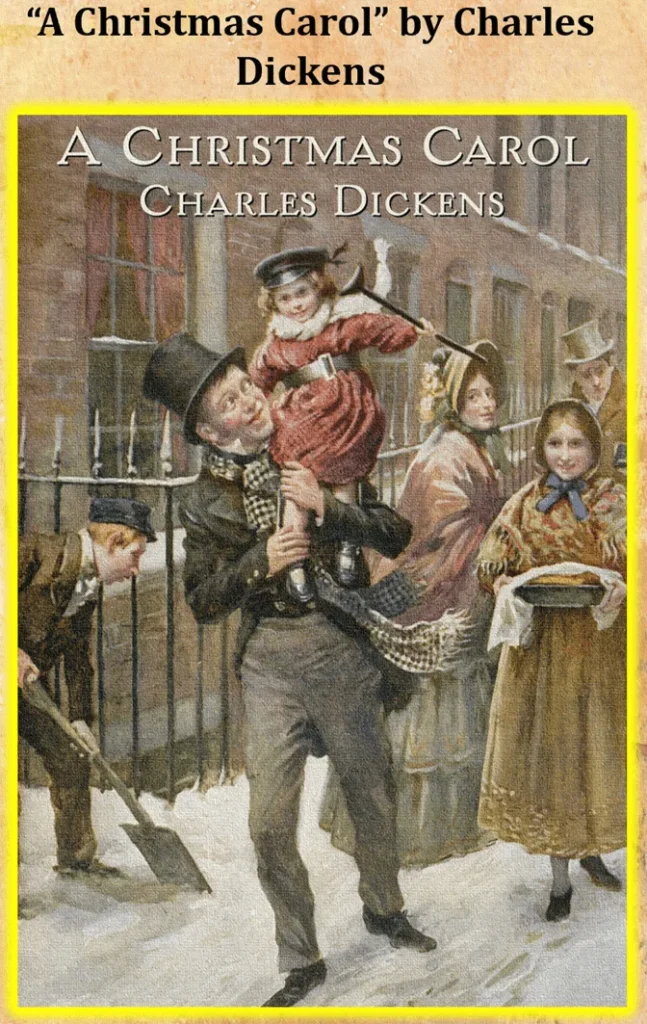
The enduring popularity of “A Christmas Carol” lies not only in its heartwarming story but also in Dickens’ poignant critique of social inequities. By contrasting Scrooge’s material wealth with the hardships faced by the working class, Dickens reminds readers of the importance of empathy and societal responsibility.
“Great Expectations”: Character development and societal criticism
In “Great Expectations,” Dickens crafts a tale of self-discovery, ambition, and societal hierarchies. The protagonist, Pip, encounters various characters that shape his aspirations and moral compass. Through Pip’s journey, Dickens explores themes of class divisions, wealth, and the corrupting influence of material desires.
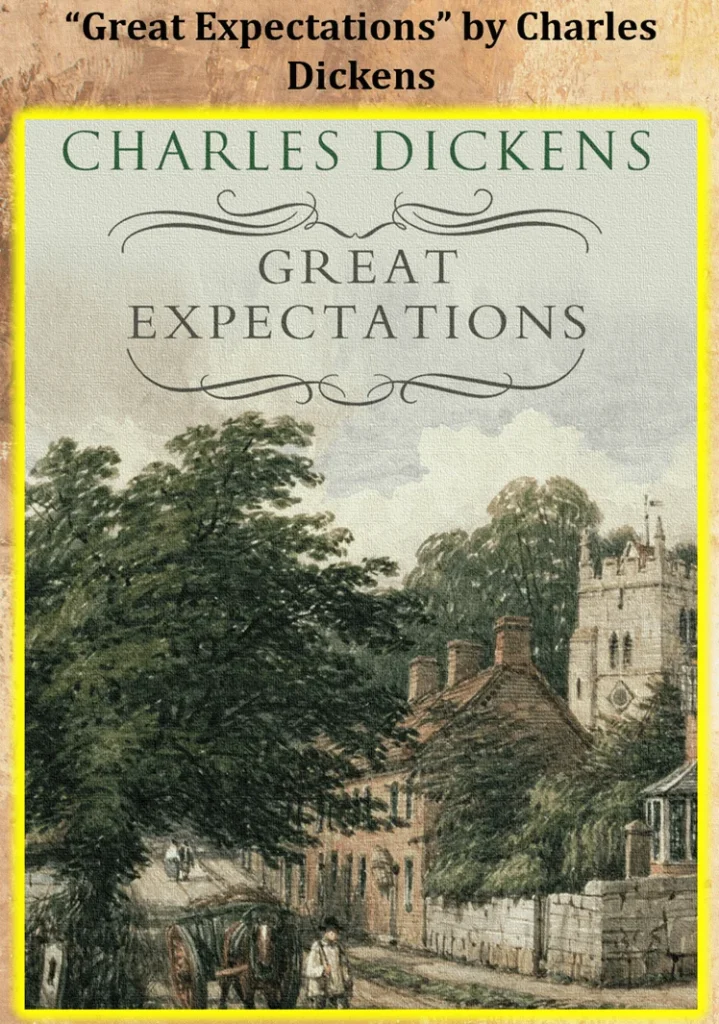
Dickens’ character development in “Great Expectations” is exceptional, with each character serving a unique purpose in unraveling the complexities of Victorian society. Pip’s evolution from a young, impressionable boy to a mature adult provides readers with insight into the moral dilemmas faced during this era. Dickens’ exploration of societal criticism through the character’s personal experiences adds depth and relevance to this enduring novel.
Exploring the Poetic Skill and Notable Poems of Charles Dickens
While Charles Dickens is primarily celebrated as a novelist, his literary talents extend beyond prose to include poetry of remarkable depth and emotional resonance. Despite being less known for his poetic endeavors, Dickens’s verse exhibits a keen sense of rhythm, imagery, and thematic complexity. Let us explore the poetic skill of Charles Dickens and highlight a selection of his notable poems.
Poetic Skill of Charles Dickens
Dickens’s poetic skill manifests in his ability to capture the essence of human experience through language that is both evocative and lyrical. His poems often reflect the same themes of social justice, compassion, and moral introspection that characterize his novels. With a keen eye for detail and a gift for storytelling, Dickens infuses his verse with vivid imagery and emotional depth, inviting readers to ponder life’s mysteries and complexities through the lens of poetic expression.
- “The Ivy Green” (1837): “The Ivy Green” is among Dickens’s most beloved poems, celebrated for its simplicity and profound observation of nature’s beauty. In this poem, Dickens explores the enduring resilience of the ivy plant, which clings steadfastly to the wall despite the changing seasons and the passage of time. Through vivid imagery and metaphor, Dickens conveys themes of perseverance and continuity, inviting readers to contemplate the significance of life’s enduring cycles amidst the tumult of the world.
- “The Poet’s Heart” (1850): “The Poet’s Heart” exemplifies Dickens’s introspective exploration of the creative process and the profound connection between art and the human spirit. In this poem, Dickens delves into the inner workings of the poet’s mind, describing it as a sanctuary where dreams take flight and emotions find expression. Through rich symbolism and metaphor, Dickens evokes the transformative power of poetry to illuminate the darkest corners of the soul and inspire hope in times of despair.
- “The Chimes” (1844): Another of Dickens’ holiday-themed works, “The Chimes,” is a novella that explores themes of social injustice, poverty, and the transformative power of love and forgiveness. While not a poem in the traditional sense, “The Chimes” showcases Dickens’ talent for crafting vivid imagery, poignant dialogue, and lyrical prose that resonates with readers long after the final page is turned. The novella’s exploration of the human condition and its message of hope and renewal make it a timeless piece of literature.
In these poems, Charles Dickens demonstrates his ability to capture the complexities of life, evoke deep emotions, and inspire reflection on the universal truths that bind humanity together. While his novels may overshadow his poetic endeavors, Dickens’ poems offer valuable insights into his creative vision and enduring literary legacy.
Dickens’ shorter fiction and journalistic contributions
Serialized novels and their influence
Apart from his major novels, Charles Dickens also made significant contributions to literature through his serialized novels. Serialized novels, released in installments, allowed Dickens to capture the attention of a wide readership while experimenting with different narrative techniques. Works like “The Pickwick Papers” and “Bleak House” gained immense popularity, showcasing Dickens’ ability to engage readers through ongoing suspense and anticipation.
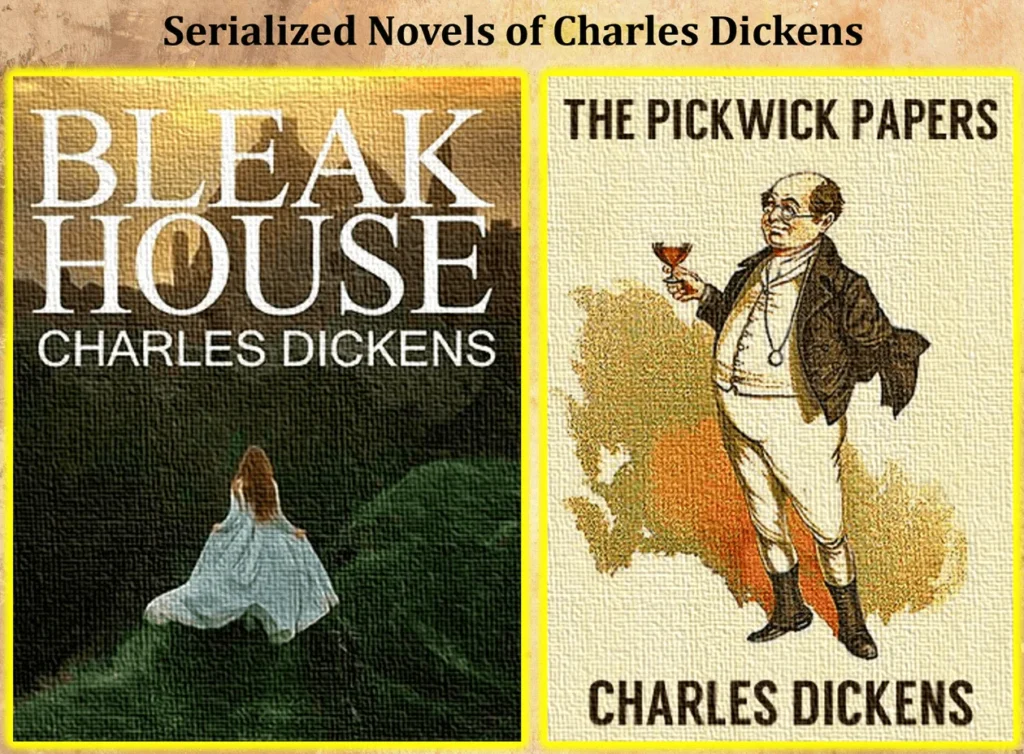
Serialized novels not only showcased Dickens’ talent for weaving intricate plots but also provided a platform for addressing social issues in a timely manner. By publishing his works serially, Dickens had the opportunity to gauge public opinion and advocate for social reforms, highlighting the power of literature as a catalyst for change.
Journalistic ventures and social reform advocacy
Beyond his fiction, Charles Dickens made significant contributions to journalism, using the platform to advocate for social reform. As a reporter, he wrote extensively about the appalling conditions endured by the working class, shedding light on the injustices prevalent in Victorian society. Dickens’ journalistic ventures played a vital role in fostering public awareness and rallying support for societal change.
Through his writings, Dickens raised a voice against child labor, deficient healthcare, and inadequate education systems. He leveraged the power of words to incite compassion and promote empathy, highlighting the hardships faced by the underprivileged. Dickens’ journalistic contributions demonstrate his commitment to using his platform to effect positive change.
“It is a fair, even-handed, noble adjustment of things, that while there is infection in disease and sorrow, there is nothing in the world so irresistibly contagious as laughter and good humor.”
– Charles Dickens
Dickens’ Societal Impact and Contributions
Charles Dickens, the celebrated English writer, remains a prominent figure in literary history, with his works leaving an indelible mark on society. Beyond his captivating storytelling, Dickens pioneered social criticism and reform, shedding light on prevalent issues of poverty, education, and inequality. His advocacy for labor reforms and social justice continues to resonate, even in the contemporary world. Additionally, Dickens’ influence on 19th-century Victorian society and his contributions to philanthropy and charitable causes further exemplify the profound impact of his life and works.
Social criticism and reform in Dickens’ works
Dickens possessed a keen sense of observation and a deep understanding of the social fabric of his time. Through his vivid and empathetic narratives, he shed light on the pressing issues plaguing society, urging readers to confront them head-on.
Portrayal of poverty, education, and inequality
In his novels, Dickens masterfully painted a picture of the abject poverty and destitution experienced by the lower classes. Through characters like Oliver Twist and Tiny Tim, he exposed the harsh realities faced by the underprivileged. By humanizing these individuals and highlighting their struggles, Dickens elicited a sense of empathy and compassion from readers.
Moreover, Dickens recognized the pivotal role of education in breaking the cycle of poverty. In “Hard Times,” he critiqued the mechanistic and soulless approach to education prevalent during the Industrial Revolution. Through characters like Gradgrind and Sissy Jupe, Dickens emphasized the importance of a holistic education that nurtures creativity, compassion, and emotional intelligence.
Advocacy for labor reforms and social justice
Through his works, Dickens voiced his concerns about the deplorable working conditions and exploitation faced by laborers during the Victorian era. In “Bleak House,” he exposed the inefficiencies of the Chancery Court and showcased the detrimental effects of a justice system inaccessible to the working class. Through these narratives, Dickens prompted readers to question the prevailing social and legal systems and advocate for reform.
Dickens also championed the cause of social justice by condemning the inherent inequality and injustice prevalent in society. His portrayal of characters like Miss Havisham in “Great Expectations” and the greedy Scrooge in “A Christmas Carol” shed light on the corrosive effects of greed and selfishness. By contrasting these negative traits with the virtues of kindness and generosity, Dickens advocated for a more equitable and compassionate society.
Influence on 19th-century Victorian society
Dickens’ impact on Victorian society extended far beyond his literary contributions. His works played a crucial role in shaping public opinion and sparking important discussions on social issues. Victorian society was undergoing rapid industrialization and urbanization, resulting in significant social upheaval. Dickens’ novels acted as a mirror, reflecting the triumphs and tribulations of the era. Readers found solace and connection in his relatable characters, gaining a renewed sense of empathy and understanding for the challenges faced by their fellow citizens.
Moreover, Dickens’ popularity and reach allowed his ideas to permeate various levels of society. His serialized novels, such as “The Pickwick Papers” and “David Copperfield,” reached a wide readership, including both the working class and the middle class. Through this broad readership, Dickens became a catalyst for change, fostering a collective consciousness and driving societal transformation.
Dickens’ contributions to philanthropy and charitable causes
Beyond his literary achievements, Dickens took concrete actions to address the issues he so eloquently wrote about. He demonstrated a deep commitment to philanthropy and charitable causes, actively engaging in endeavors aimed at alleviating the suffering of the less fortunate.
One notable example of Dickens’ philanthropic efforts is his involvement in the support and establishment of various charitable institutions. He played a pivotal role in the establishment of Urania Cottage, a home for “fallen” women, providing them with education, vocational training, and support to reintegrate into society. Furthermore, Dickens’ involvement with Great Ormond Street Hospital demonstrated his dedication to improving the lives of children in need.
Dickens’ philanthropic activities extended beyond specific institutions. He embarked on extensive lecture tours, using the proceeds to support charitable organizations dedicated to helping the impoverished and marginalized. Through his direct involvement and financial contributions, Dickens actively worked towards addressing the societal issues he so passionately wrote about.
Charles Dickens was much more than a talented writer; he was a catalyst for social change and an advocate for the marginalized. His works not only entertained readers but also prompted them to confront the injustices present in their society. Through his portrayal of poverty, education, and inequality, Dickens shed light on these pressing issues. His advocacy for labor reforms and social justice challenged the prevailing systems of his time. Dickens’ influence on Victorian society and his contributions to philanthropy further cement his lasting legacy. As we reflect on his life and works, let us be inspired to follow in his footsteps, using our talents and resources to make a positive impact on the world around us.
Legacy and Lasting Influence
Dickens’ impact on literature and storytelling
Charles Dickens revolutionized the world of literature with his unique storytelling techniques and social criticism. His works captured the imagination of readers with their richly drawn characters, intricate plots, and powerful narratives. Dickens’ vivid descriptions of 19th century London brought the city to life, making it almost like a character in his novels. His attention to detail and ability to evoke empathy in readers set him apart from his contemporaries.
Revival and adaptation of Dickens’ works in modern culture
Theater, film, and television adaptations
The enduring popularity of Dickens’ works can be seen in the countless adaptations that have been produced for the stage, film, and television. From the early silent film adaptations in the 1900s to the recent BBC miniseries, Dickens’ stories have been brought to life in various formats. These adaptations not only introduce Dickens’ works to new generations but also demonstrate the timelessness of his storytelling.
Influence on subsequent authors and literary movements
Dickens’ influence extends beyond the adaptations of his works. He has inspired numerous authors and literary movements with his storytelling prowess. Writers such as J.D. Salinger, Fyodor Dostoevsky, and George Orwell have all acknowledged their debt to Dickens. Moreover, Dickens’ critique of social inequality and his portrayal of the hardships faced by the poor have influenced subsequent movements like social realism and the social novel.
Dickens’ enduring popularity and continued relevance
Despite the passage of time, Charles Dickens’ works continue to resonate with readers around the world. The complex characters he created, such as Oliver Twist, Ebenezer Scrooge, and Miss Havisham, are still discussed and analyzed in classrooms and literary circles. Dickens’ ability to capture the essence of human nature and the social issues of his time has ensured his enduring popularity and continued relevance.
“It was the best of times, it was the worst of times, it the age of wisdom, it was the age of foolishness, it was the of belief, it was the epoch of incredulity, it was the of Light, it was the season of Darkness, it was the spring of hope, it was the winter of despair.”
– Charles Dickens, A Tale of Two Cities
Conclusion & FAQs
The conclusion reflects on the enduring legacy of Charles Dickens, a celebrated writer known for his captivating life and iconic works. Dickens’ influence on literature and society is profound, marked by his ability to portray the human condition with compassion and shed light on the inequalities of Victorian society. His remarkable body of work includes timeless classics like “Oliver Twist,” “A Tale of Two Cities,” and “Great Expectations,” which continue to captivate readers of all ages.
Dickens pioneered serialized fiction, making his stories accessible to a wider audience and solidifying his influence as a leading Victorian author. As a passionate social reformer, he used his writing to advocate for change and give voice to the marginalized. His characters, such as Ebenezer Scrooge and Sydney Carton, embody the complexities of human nature and resonate with readers through their relatability and depth.
Dickens’ themes of social injustice, love, forgiveness, and redemption remain relevant in today’s world, prompting readers to reflect on their own lives and actions. His emphasis on empathy, community, and the transformative power of kindness serves as a timeless reminder of the importance of human connection.
In essence, Dickens’ writing transcends time and place, inspiring, challenging, and captivating readers across generations. His legacy as a literary giant will endure, leaving an indelible mark on literature and society as a whole.
Frequently Asked Questions (FAQs)
Was Charles Dickens considered successful during his lifetime?
Despite facing financial challenges early in his career, Charles Dickens achieved great success during his lifetime. His serialized novels garnered immense popularity, with readers eagerly awaiting each installment. Dickens’ fame and influence extended beyond the literary world, with his public readings drawing large crowds and his social activism resonating with a wide audience. His success allowed him to enjoy a comfortable lifestyle and afforded him the opportunity to travel extensively.
How did Dickens’ personal experiences influence his writing?
Dickens’ personal experiences had profound impact on his writing. Growing up in poverty, his firsthand observations of inequality, child labor, and other injustices fueled his desire to shed light on these issues. Additionally, Dickens’ own struggles with a difficult childhood and a strained marriage provided him with deep well of emotions and personal insights that he drew upon in his storytelling. His undoubtedly shaped his compassionate worldview and influenced his ability to create empathetic characters.
What are some key themes commonly found in Dickens’ novels?
Several key themes are commonly found throughout Dickens’ novels. Social justice and the plight of the oppressed feature prominently, as he often exposed the harsh realities faced by the working class and highlighted the disparities between the rich and poor. Redemption, second chances, and personal growth are recurring themes, as Dickens believed in the power of individuals to transform their lives for the better. Love, family, and community also play vital roles in his works, emphasizing the importance of human connection. Lastly, Dickens explores the corrupting influence of greed and the pursuit of wealth, cautioning against the dangers of materialism and the dehumanizing effects of avarice.
How has Charles Dickens impacted the portrayal of social issues in literature?
Charles Dickens’ impact on the portrayal of social issues in literature cannot be overstated. His unflinching critiques of social injustices and his ability to humanize the marginalized and disenfranchised set a new standard for the portrayal of social issues in fiction. He inspired subsequent generations of writers to use their works as platforms for social commentary and provoked readers to confront uncomfortable truths about their own society. Dickens’ influence can be seen in the works of authors ranging from George Orwell to Zadie Smith, who continue to illuminate social issues through powerful storytelling.
What are some notable film adaptations of Dickens’ works?
Numerous film adaptations of Dickens’ works have been produced over the years, showcasing the enduring appeal of his stories. Some notable adaptations include the 1948 film “Oliver Twist,” directed by David Lean, which vividly brings Dickens’ characters to life on the big screen. Another well-known adaptation is the 1998 film “Great Expectations,” directed by Alfonso Cuarón, which captures the essence of Dickens’ novel through its visual storytelling and strong performances. Additionally, the 2019 film “The Personal History of David Copperfield,” directed by Armando Iannucci, offers a fresh and humorous take on one of Dickens’ beloved tales.

Usually I do not read article on blogs however I would like to say that this writeup very compelled me to take a look at and do so Your writing taste has been amazed me Thanks quite nice post